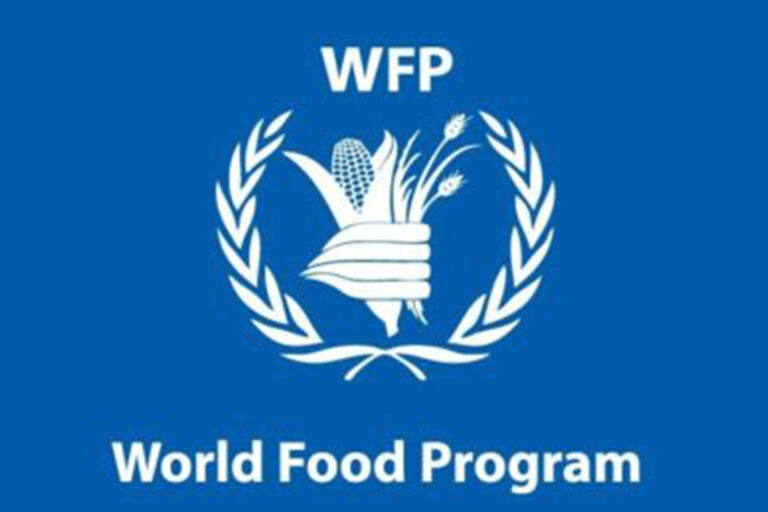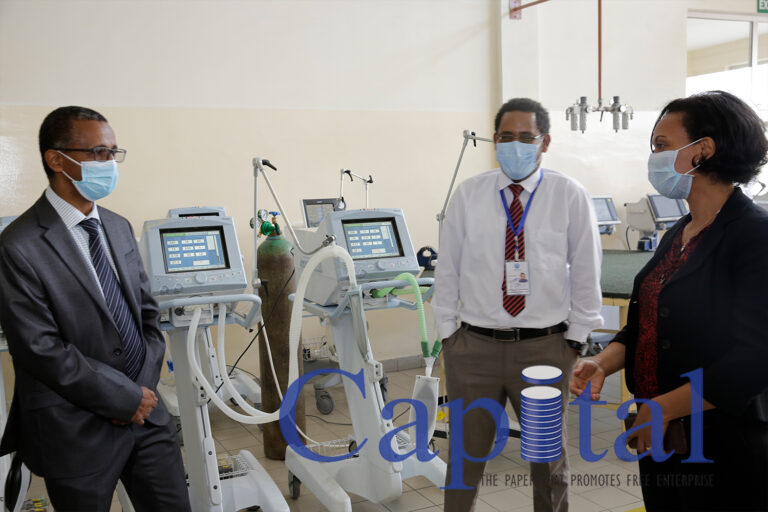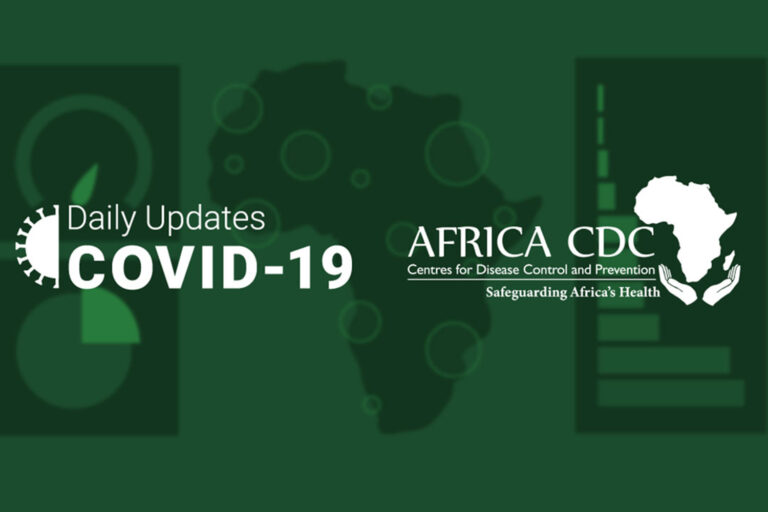The first flight for humanitarian workers left Ethiopia’s Bole International Airport on May 1, and flew to Kotoka International Airport in Accra, Ghana, opening a new passenger service between a network of regional hubs for the COVID-19 response.
The service run by the World Food Programme (WFP) and Ethiopian Airlines is available for United Nations and Non-Governmental Organization staff working in the global pandemic response, according to a statement from WFP. “A dedicated fleet flies them to and from crisis areas amid reduced commercial flight availability due to travel restrictions and decreased demand,” reads the statement.
Ethiopia and Ghana both host regional hubs-part of a new network of hubs also set up by WFP in Malaysia, Panama, South Africa and the United Arab Emirates (UAE). This hubs-and-spokes system routes workers and medical cargo to the frontlines with flights to and from hubs and a fleet of smaller aircraft moving both cargo and personnel on to priority countries.
“Key stakeholders helped establish this vital initiative in Addis Ababa,” said Steven Were Omamo, WFP Country Director and Representative in Ethiopia. “The Government, its Ministry of Finance in particular, Bole International Airport and Ethiopian Airlines proved their commitment to fighting the pandemic by setting up and maintaining this life-saving airlink.”
The service ensures humanitarian organizations can provide the people and cargo needed to sustain assistance operations that millions of vulnerable people depend on across Africa.
WFP has also established three global Humanitarian Air Hubs in Liège, Belgium, Guangzhou, China, and Dubai in the UAE, which is the only hub that has a dual global and regional role.
WFP opened the Addis Ababa Air Hub in March at Bole Airport where 25 WFP aviation and logistics staff manage a 24-hour medical equipment operation. Staff organize warehouse space for dry bulk, temperature-controlled and cold storage cargo and onward flights. WFP also provides cargo tracking, warehouse management and customer service to countries across Africa in collaboration with the Africa Centres for Disease Control and Prevention.
As part of a global appeal to raise USD 2 billion for the COVID-19 response launched by the United Nations Office for Coordination of Humanitarian Affairs on 25 March, WFP called for USD 350 million to support its common aviation, shipping, storage and transport and engineering services that are vital to the entire humanitarian response to the pandemic.
WFP starts Africa flights for humanitarian workers in covid-19 response
The third batch donation of Jack Ma foundation
The third batch donation of Jack Ma foundation for Africa has arrived at Addis Ababa bole international airport on Monday, April 27, 2020.
The third-round donation mainly includes 4.6 million masks, 500,000 swabs and test kits, 300 ventilators, 200,000 sets of protective clothing, 200,000 face shields, 2,000 temperature guns, 100 body temperature scanners, and 500,000 pairs of gloves.
To combat the spread of the virus and support the response in Africa, the Chinese billionaire and co-founder of Alibaba group Jack Ma has made different donations to the continent. 
Last month Jack Ma foundation has issued two huge rounds of the donations, the first round of donation was issued out a total of 1.1 million testing kits, 6 million masks and 60,000 medical use protective suits and face masks that were distributed to the 54 African countries, and the second donations include 500 ventilators, 200,000 suet and face shields, 2000 thermometers, 1 million swabs and extraction kits and 500,000 pairs of gloves. All the three donations were shipped by Ethiopian air lines from china to Addis Ababa and to the perspective countries.
The third donation will be given for centers for disease control Africa and African union member states to support Covid19 responses
“The world cannot afford the unthinkable consequences of a COVID-19 pandemic in Africa. The crisis is proving to be more difficult and longer lasting than any of us had expected. We must make every effort to get prepared. As members of the global community, it would be irresponsible for us to sit on the fence, panic, ignore facts, or fail to act. We need to take action now,” said Jack Ma.
African countries start easing COVID-19 confinement measures
When COVID-19 emerged as a global health threat, African countries were quick to enact public health measures to slow the spread of the virus. Now as some countries begin to ease lockdowns, it is important to maintain strong surveillance, case finding and testing among other control measures to halt the pandemic.
“National and regional lockdowns have helped to slow down the spread of COVID, but it remains a considerable public health threat,” said Dr Matshidiso Moeti, the World Health Organization (WHO) Regional Director for Africa. “Lockdowns are being eased in some parts of Africa, but we cannot just revert back to how things were before the outbreak. If governments abruptly end these measures, we risk losing the gains countries have made so far against COVID-19.”
Africa has to date recorded more than 36,000 confirmed cases of COVID-19 and over 1,500 deaths. West and Central Africa are regions of concern. So far there are 11,000 cases in West and Central Africa, and 300 people have died. In the week of 13 April, cases increased by 113% in Central Africa and 42% in West Africa.
However, the worst fears of public health officials and governments have not yet come to pass. Africa has so far been spared an explosion in COVID-19 case numbers. Prompt action by governments to implement lockdowns and physical distancing, alongside effective public health measures to test, trace and treat have slowed down the spread of the virus.
The first country to implement a lockdown in the WHO African Region was Rwanda on 21 March, since then 11 countries have followed. A further 10 have instituted partial lockdowns of cities or high risk communities.
Preliminary data indicate that countries that implemented nationwide lockdowns found that the weekly increase in the number of new cases fell significantly from a 67% rise in the first week after the lockdown to a 27% rise in the second week. Furthermore, the initial analysis indicates that countries which implemented partial and targeted lockdowns along with effective public health measures may have been even more effective at slowing down the virus.
“We are still analysing the data. If further research corroborates our initial findings that targeted lockdowns, based on data and accompanied by public health measures contribute to flattening the COVID-19 curve, this could help balance the huge social costs of these measures for countries,” said Dr Moeti.
Countries are now starting to relax their confinement measures. Ghana was the first to lift its partial lockdown in Accra and Kumasi. However, other restrictions are in place, and the government has stressed that the end of the lockdown does not mean the end of the pandemic. While some essential businesses are being opened, mass gatherings are still not permitted and restrictions on the number of passengers on public transport services remain in place.
The government is continuing to monitor events in COVID-19 hotspots and has stated it will re-establish localized lockdowns if needed. Ghana is also averaging around 30 COVID-19 tests per 10,000 people per day – the highest in West Africa. South Africa is also considering easing its confinement measures and has scaled up its testing efforts. Despite progress on testing for COVID-19, countries in the WHO African region are averaging nine tests per 10 000 people.
Press Freedom and disinformation during the COVID-19 crisis, flagship event of World Press Freedom Day 2020
On the occasion of World Press Freedom Day, celebrated every year on 3 May, UNESCO and its Director-General, Audrey Azoulay, will host an online discussion on the importance of free media in providing the public with reliable independent information, vital in times of crisis. The High-level Dialogue on Press Freedom and Tackling Disinformation in the COVID-19 context, will be streamed online on Monday 4 May.
UNESCO’s flagship event of World Press Freedom Day will bring together UN Secretary-General António Guterres, UN High Commissioner for Human Rights, Michelle Bachelet, journalist Younes Mujahid, President of the International Federation of Journalists, Maria Ressa, investigative journalist from the Philippines, founder of the Rappler news website, and the Secretary General of Reporters Without Borders, Christophe Deloire, alongside a number of other high level participants. Prominent Mexican-born American journalist Jorge Ramos will moderate the debate.
The debate will address the danger of what the UN Secretary-General has described as the “dangerous epidemic of misinformation.” It will advocate the need for a free press in countering disinformation which is putting lives at risk and undermining the response to the COVID-19 pandemic by promoting false cures, conspiracy theories and myths.
The debate will follow the launch on 3 May of a global UNESCO media campaign called FACTS which highlights the role of free and independent media in the context of COVID-19. Leading media organizations around the world are joining the campaign, developed by communication agency DDB.
Every year on 3 May, the world comes together to celebrate the fundamental principles of press freedom, take stock of freedom of expression around the world, and pay tribute to journalists who have faced attacks or lost their lives in the exercise of their profession. World Press Freedom Day was proclaimed by the UN General Assembly in 1993 on the Recommendation of UNESCO’s General Conference.








